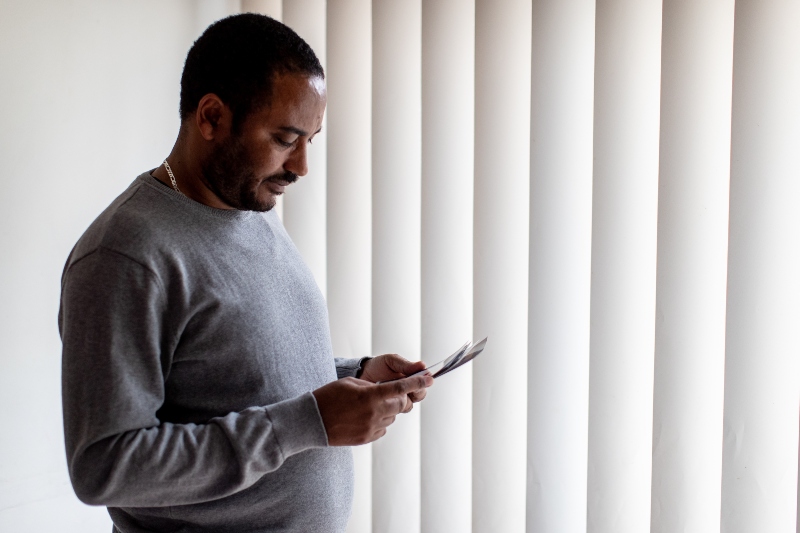#Advocacy4Oromia keeps Oromo community informed about COVID-19

Dabessa Gemelal is one of many refugees in Australia who have been working in their communities to tackle COVID-19.
Through community education and information program and other initiatives he has been providing valuable community education and information about COVID-19 in Oromo language to make sure people know about and understand government measures and support services.
Dabessa is director of Advocacy for Oromia, which started the community education and information program to share verified information with refugee communities, especially Oromo community, about the coronavirus.
Dabessa believes we will get through these times because we are working together.
“A4O community education and information program showcases the positive contribution of our community and how they have come together in this unprecedented time to help everyone,” he said.
In addition to the community education and information program Dabessa has been organising online conversations with various Oromo community organisations and members to give information in Oromo language.
“I am working with the various Oromo Community associations, running online workshops to build the capacity of our people from refugee backgrounds in accessing timely and accurate information during COVID-19.”
Dabessa has experienced more in his life than most people can say from a lifetime of experiences. Dabessa fled Oromia in fear of political persecution.
He landed in Kenya as refugee, with no rights or access to work, education, health care or housing.
“I was always under threat of being arrested. I never felt safe in Kenya,” Dabessa said.
While Dabessa was in Nairobi, applying for refugee status, his worst fears were confirmed: “I got the news my wife was arrested.”
Just like her husband, Lelisse was falsely imprisoned for three years. In that time, Dabessa arranged for their children to be brought to Nairobi, and the family made their way to Australia — without Lelisse — as refugees.
After registering with the UNHCR and after three years, Dabessa’s family received a humanitarian visa for Australia and resettled in Adelaide in September 2009.
“I had mixed feelings the first few months after my arrival, however, I was very relieved that I was finally safe from harm and be an active citizen and get an education.”
Dabessa was thankful for the safety and freedom his new home afforded him. But his continued separation from Lelisse made it hard to settle in or get ahead.
“Until Lelisse arrived, I never think about a job because I’m caring [for the] children,” he explains. “I need to be home when the children come home. I’m going shopping, cooking, and making them to be stronger.”
Dabessa believes Australia has given him so many chances to succeed with challenges.
“The biggest success for me was that Australia gave me the opportunity to further my education. Within the 10 years, I hold Diploma of Community Services Work, Diploma of Case Management and recently hold a Bachelor of Social Work.”
Through his own personal experiences, Dabessa is determined to contribute in influencing change where people with lived experience are part of the decision-making process so that we better address the needs of refugees and people seeking asylum in Australia and around the world.
Posted on June 21, 2020, in Uncategorized. Bookmark the permalink. Leave a comment.




Leave a comment
Comments 0